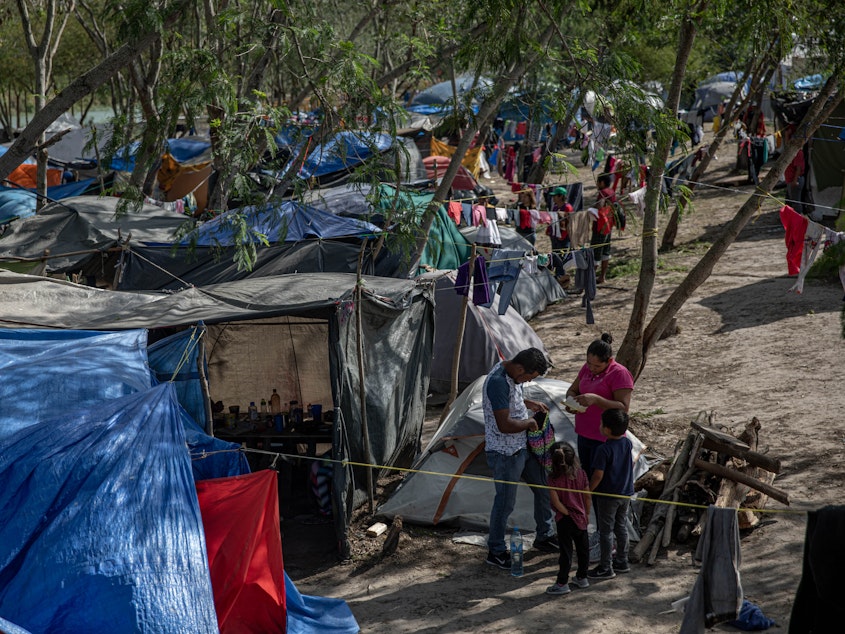U.S. Supreme Court Allows 'Remain In Mexico' Program To Continue

The U.S. Supreme Court delivered the Trump administration another win on one of its signature immigration policies on Wednesday, allowing it to implement its controversial "Remain in Mexico" policy across the entire southern border.
The policy, officially called the Migrant Protection Protocols, requires asylum seekers to wait in Mexico for their day in U.S. immigration court. That has left roughly 60,000 migrants stuck in that country, often living in filthy and dangerous conditions.
The Supreme Court has yet to make a final ruling on the legality of the MPP program itself.
The Ninth Circuit Court of Appeals in California briefly had blocked the policy last month, finding that it violates federal law, before staying its own ruling.
But the appeals court later issued a new order, blocking the policy in just two border states — California and Arizona. That was supposed to go into effect on Thursday. But the Supreme Court's decision puts an end to that while lawsuits make their way through the federal court system.
Sponsored
In court, the Justice Department argued an injunction on the policy would create chaos along the southern border, prompting a rush by migrants into the country that would put American citizens at risk. Officials credit MPP as a "game-changer" in alleviating what they called a "mass migration crisis."
Meanwhile, immigrant advocates say it puts migrants in unnecessary danger by forcing them to wait in dangerous conditions on the Mexican border, in cities such as Tijuana, Juárez, Nuevo Laredo and Matamoros.
Judges from the Ninth Circuit Court agreed that MPP likely violated federal "non-refoulement" obligations under international and domestic laws, which prohibits the government from returning people to a country where they would face persecution or torture.
This is a developing story. [Copyright 2020 NPR]


